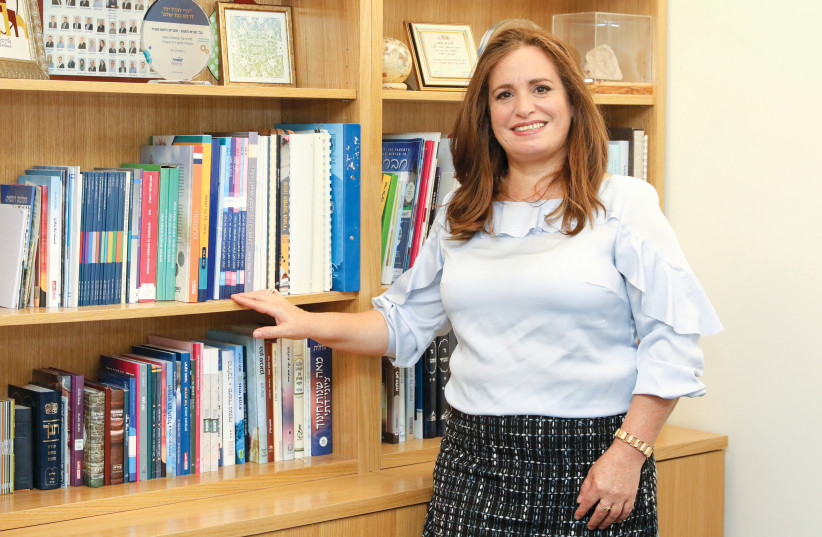
Rabbi Haim Pear is a pillar of Jerusalem’s Anglo community.
The founder of the Shir Hadash (New Song) network of synagogues and education and advocacy centers, he has also worked as a Hillel director, author, and environmental lawyer.
Now he’s taking his skills into politics.
Ahead of the municipal elections, In Jerusalem sat with Rabbi Pear to discuss his entry into politics, as well as what he hopes to advance on the city council.
What made you start Shir Hadash?
I made aliyah to Nachlaot as soon as I got married. They eventually asked me to take over one of the synagogues, and that was the first Shir Hadash. We stayed there for four years, and then we moved to Katamon and opened the second synagogue. We eventually obtained a plot of land from the city to build our building in 2019 and opened another synagogue on Emek Refaim [Street].

The idea behind Shir Hadash is that it’s not just a synagogue – it’s also an educational center. We wanted to focus on bringing Jews closer to Judaism and [to] one another and be a part of building Israel.
How did you get involved in politics?
I wasn’t involved in politics except for some Israel advocacy. The Foreign Ministry noticed that when political groups came, they would just go to Ramallah or somewhere else on Shabbat because the government would close down. Shabbat is the best prism to see what the Jewish people are all about, so we started having the groups for Friday night services and Shabbat dinner and introducing them to real Israelis.
We’ve been doing that for around 20 years. We’ve had senators, congressmen, imams, Ben Shapiro – people I never would have met before. We try to use this platform to promote and strengthen Israel.
How did you get on Hagit Moshe’s Religious Zionism ticket?
I had to interact with the city on a number of occasions. It took 13 to 15 years for us to get a license to build our synagogue. The city is incredibly inefficient in general.
I had one particular issue in 2020-2021, when I needed a letter from the property department that said we could use our nursery as a synagogue when the school isn’t open. But I couldn’t get any help with the bureaucracy.
Someone suggested I meet with Hagit Moshe, the deputy mayor in charge of education. I did, and she was incredibly responsive. During our meeting, she got the right people on the phone, and everything was resolved.
If you want to get something done in Jerusalem, Hagit Moshe is the one to do it.
A few months later, she asked me if I wanted to join her list.
What do you hope to advocate for on the city council?
First, I want to make sure Hagit can continue to do her work with the education portfolio. Secondly, I hope to fight municipal inefficiencies and help address the needs and concerns of the Anglo community. It’s a large, growing community, and we have certain needs to help us absorb better in society, such as schools, getting the right support, networking, language issues, communities, etc.
I had this idea of making a city ombudsman, but there already is one – and they can only be reached by fax. Another issue with an easy fix is that no one in the property tax office speaks English. These are very small things that could benefit olim and, ultimately, benefit everyone.
What do you think about the construction being done throughout the city?
It’s important that we don’t build into the Jerusalem Forest and other nature areas. However, that creates a dilemma. Housing prices are so high because there’s a housing shortage. If we can’t build there, we need to find other places.
The mayor’s solution is to build high-rises along the light rail to make sure they don’t create traffic issues. I don’t know if that’ll work, but they are struggling to lower prices and are trying to find options. But this has unintended consequences, and it’s making Jerusalem look like every other city and not something special.
What do you think can be done about the capital’s lack of bomb shelters?
This is a very important issue and one that won’t be solved overnight, but there are things we can do. We can make it easier to add a shelter to a building, which requires us to cut bureaucratic red tape. Public safe rooms must also be open and accessible. This is something that Hagit worked very hard on during the start of the war.■
